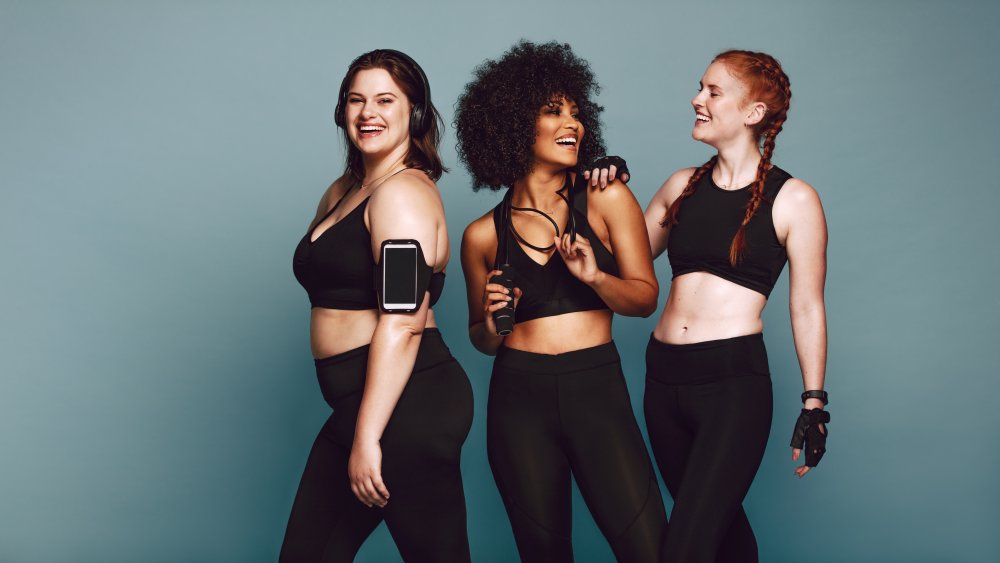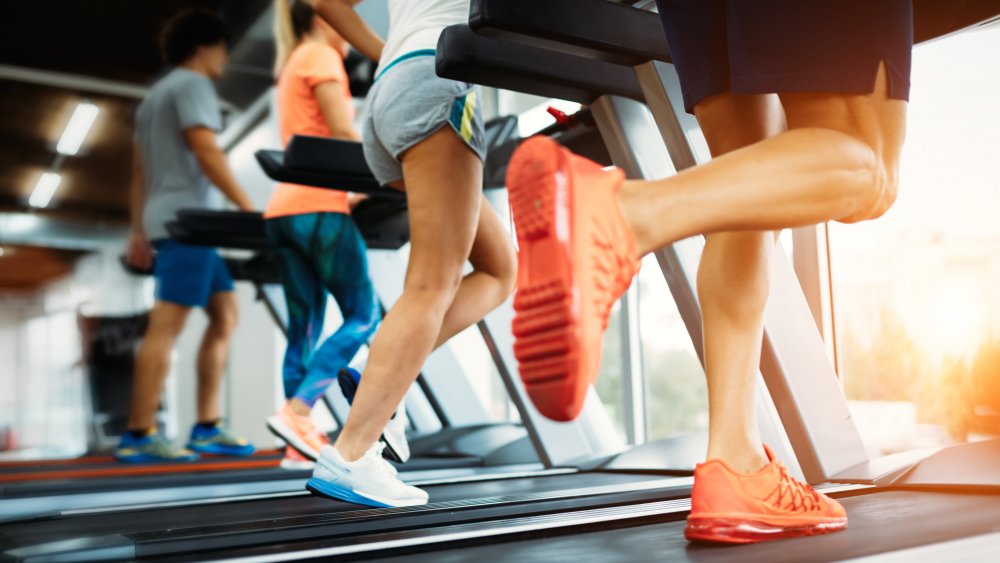HIIT Workouts Can Really Change Your Body. Here's How
These days, high intensity interval training, more commonly known as HIIT, is one of the more popular forms of working out. "It has many different forms, but essentially involves a period of working hard (and I mean hard), followed by a period of much lower intensity — or complete rest," trainer and osteopath Doug Tannahill explained to Vogue. "This is then repeated for a number of rounds or for a duration of time," he continued. And it offers so many benefits for your body.
HIIT workouts are best know for their association with fat loss. As fitness expert and celebrity trainer Rob Sulaver told SELF, "All exercise helps burn fat by burning calories," but "more intense exercise burns more fat." And according to Kyra Williams, a National Academy of Sports Medicine–certified online personal trainer and nutrition expert, HIIT is a big calorie burner. HIIT increases "the amount of calories your body burns during and after your exercise session," she told Healthline, adding "your metabolism tends to increase allowing you to use fat as fuel."
HIIT burns calories even after you've stopped working out
In other words, HIIT burns calories even after you've stopped working out, which is known as "the afterburn effect." As Heather Milton, M.S., an exercise physiologist at NYU Langone's Sports Performance Center, told SELF, this is because HIIT gets your heart rate up. "If you're working at 80 percent or more of your maximum heart rate, you know you're working close to [your limit] and are maximizing the afterburn effect," she explained. The best part? The effect can last for up to 48 hours.
According to Healthline, other benefits of HIIT are muscle gain, improved oxygen consumption, reduced blood pressure and blood sugar, and of course, the same benefit all exercise offers — endorphins. "Not only is exercise great for keeping our hearts strong and our weight healthy, but studies have shown that when we exercise we produce increased levels of endorphins and serotonin (happy hormones) which improve our moods and energy levels," Dr. Anita Sturnham told Get The Gloss.

